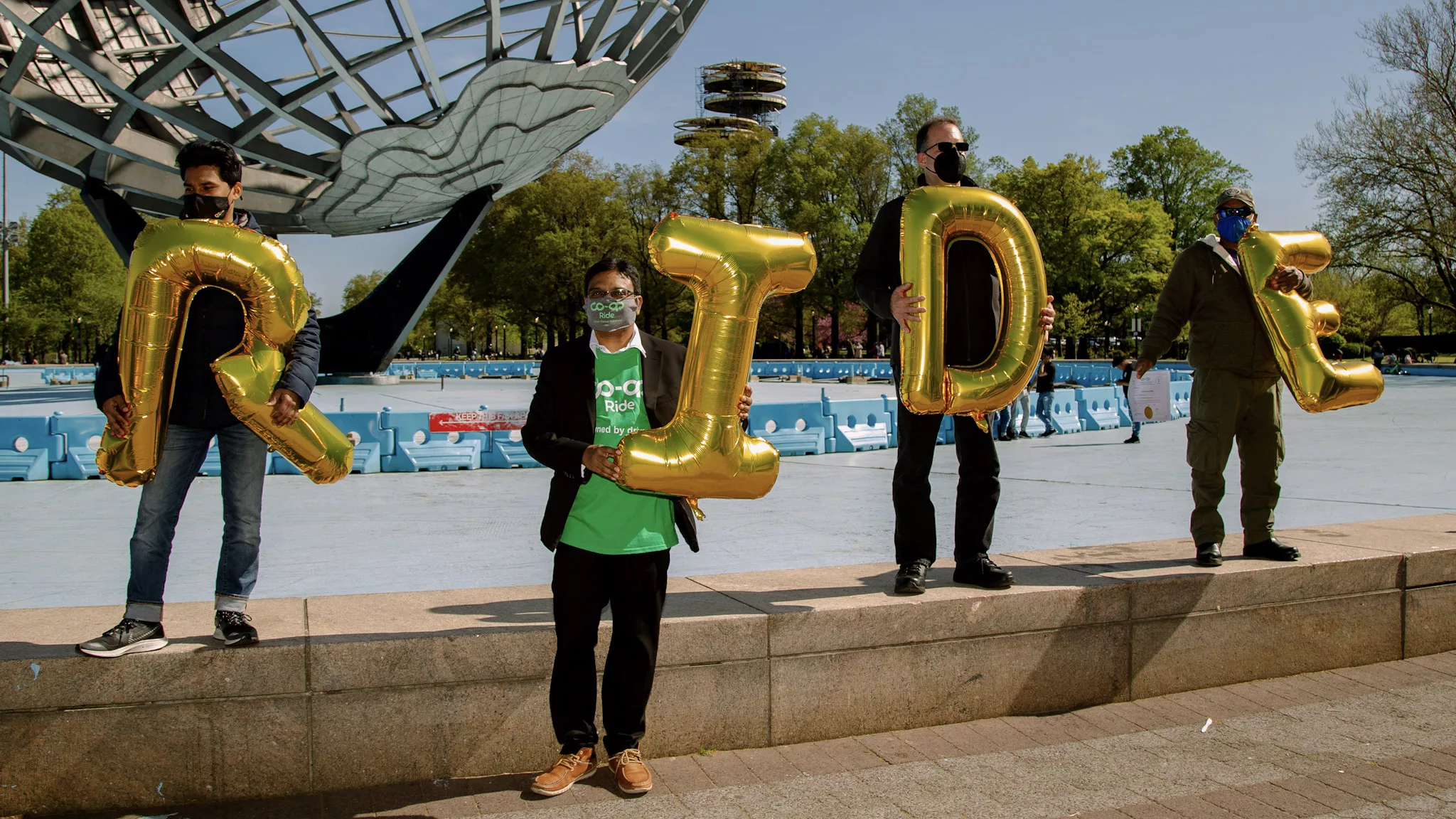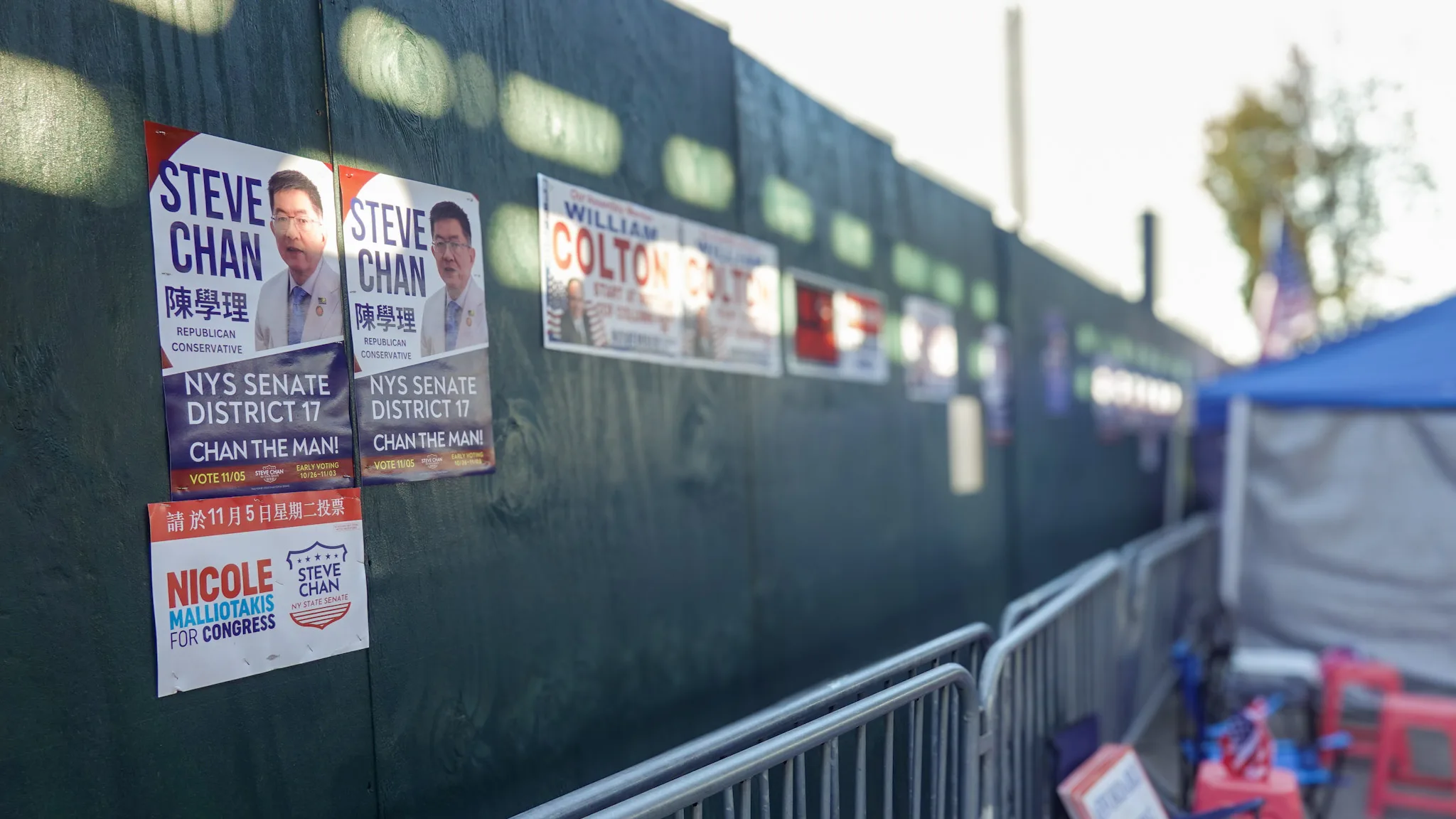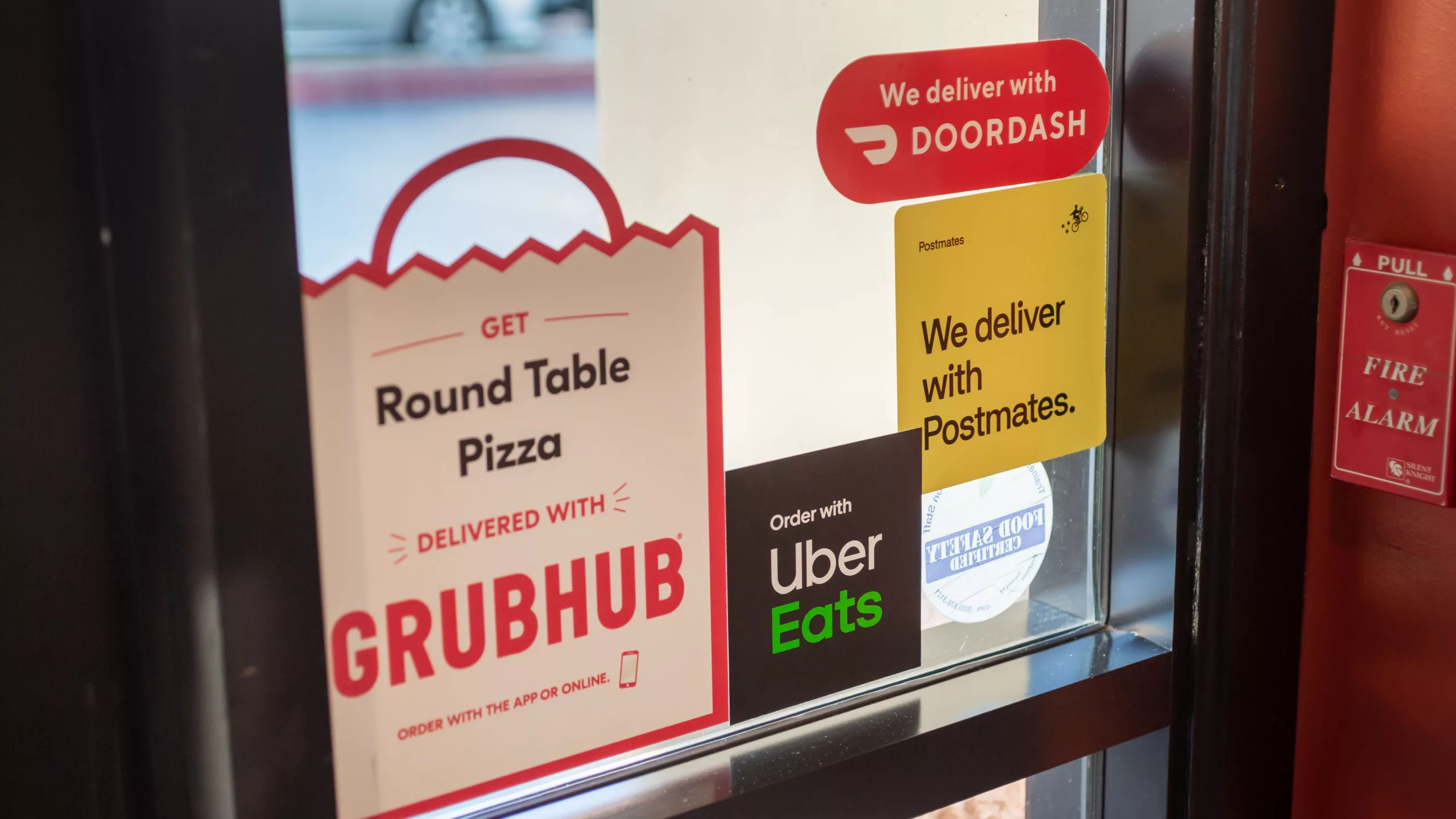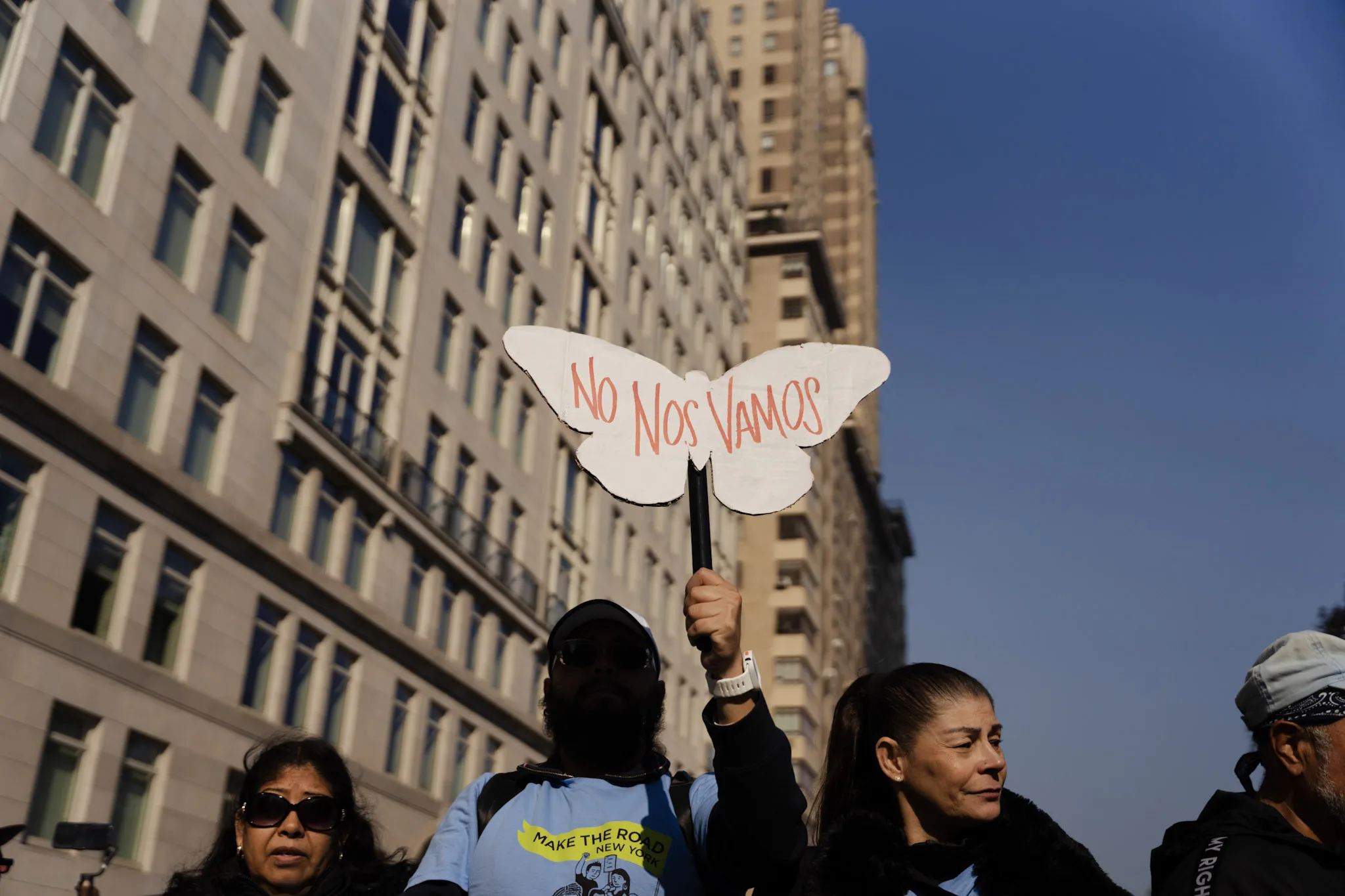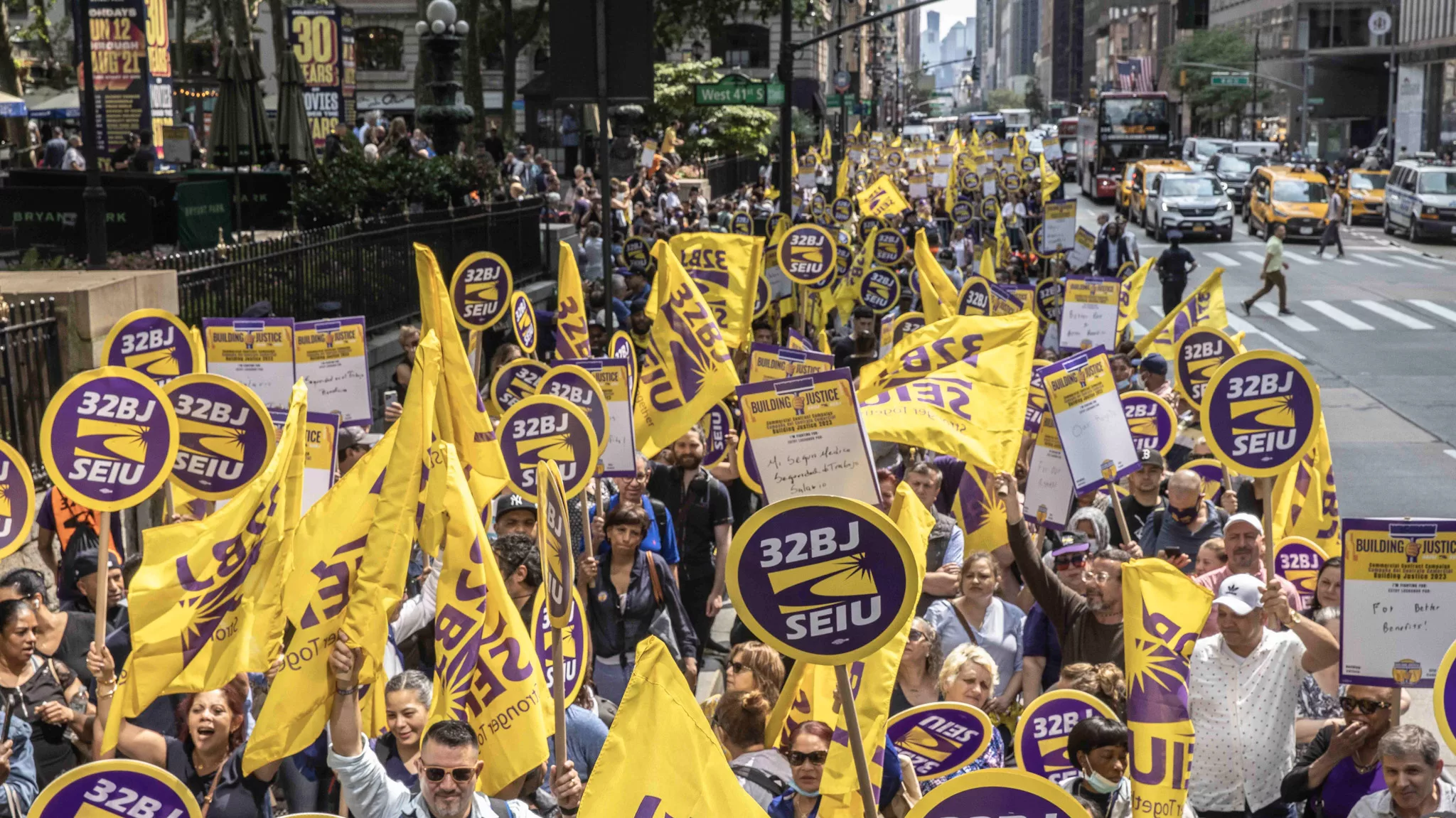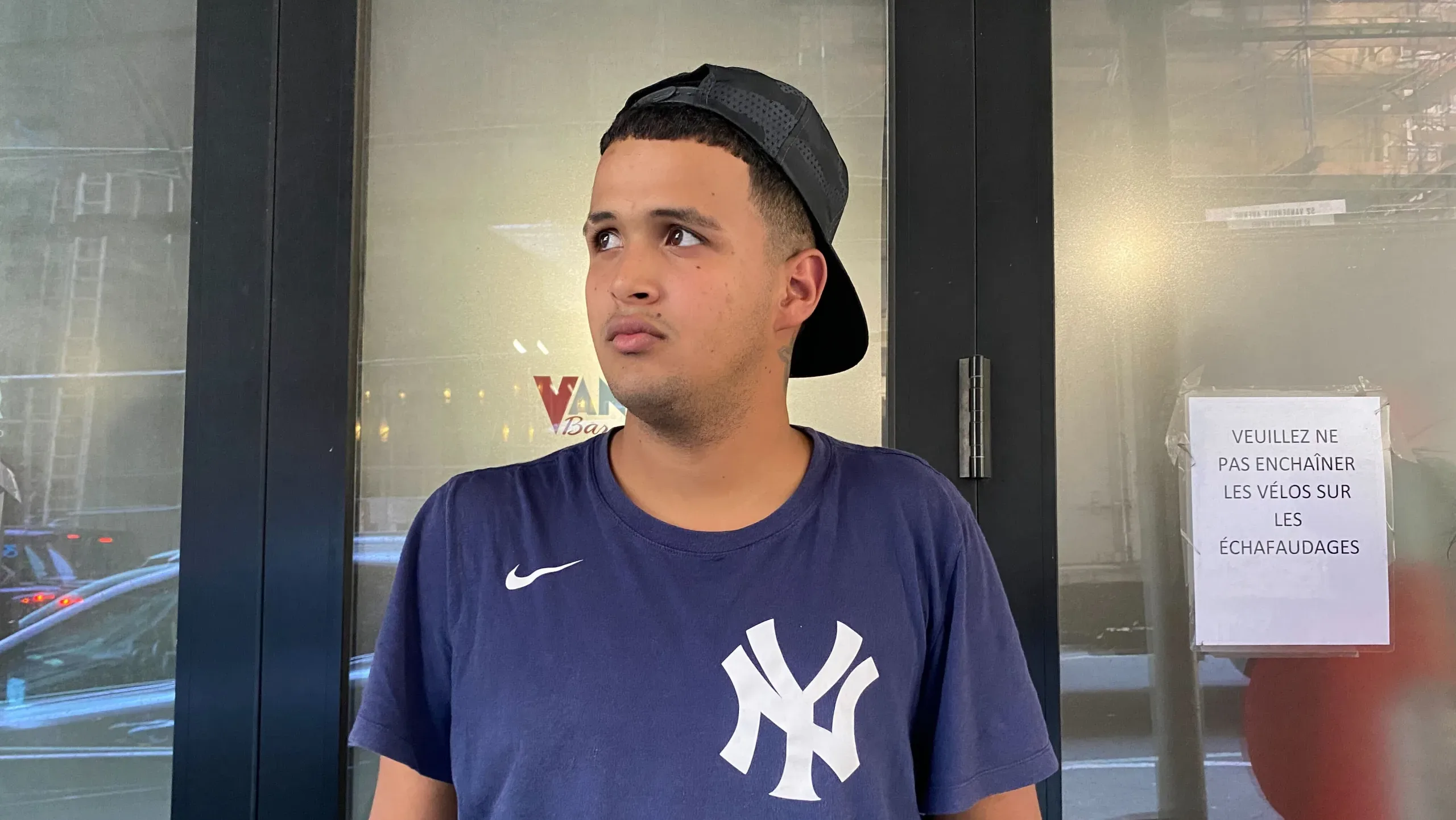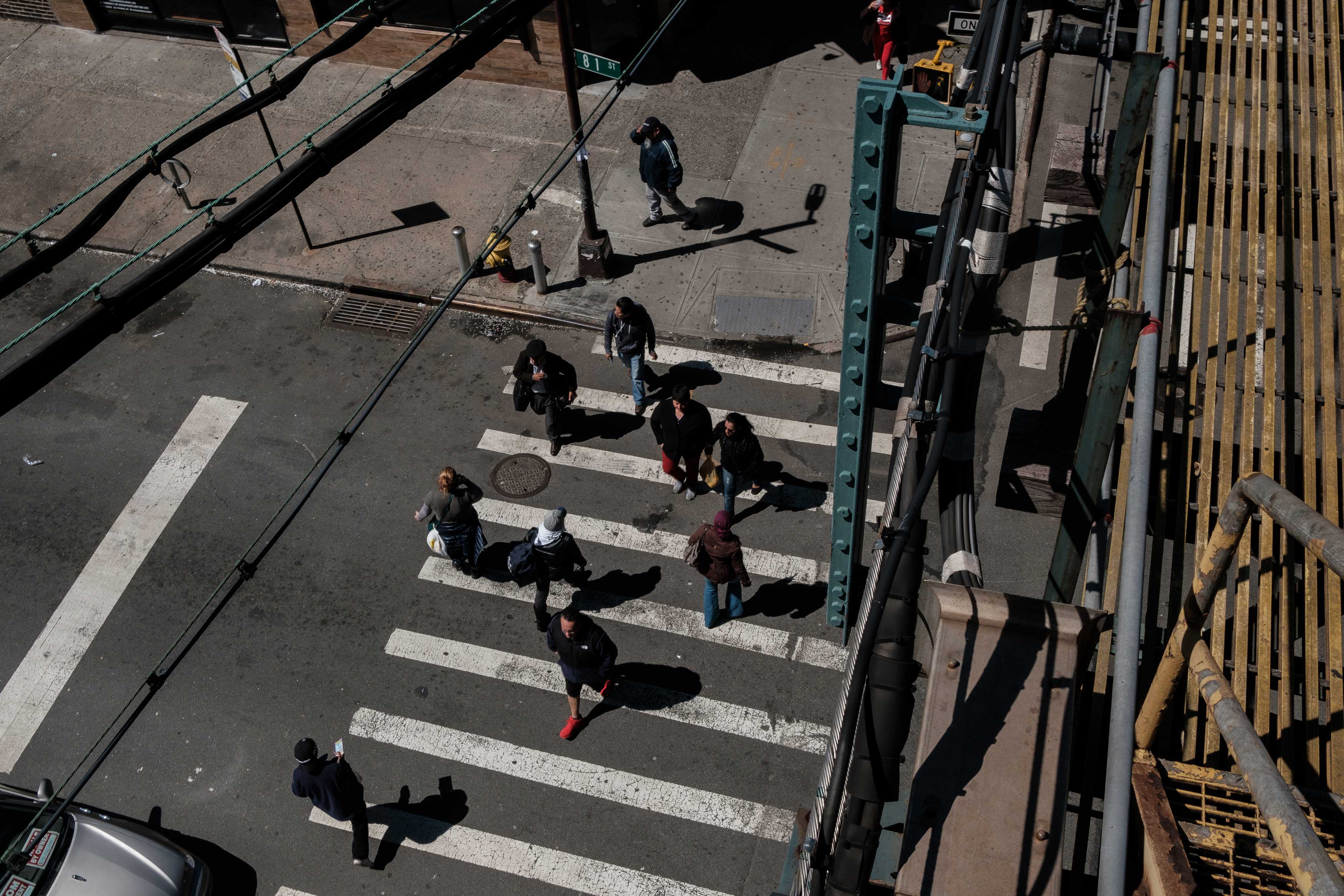It began with a utopian vision. A small group of tech workers banded together with an ambitious goal of achieving what many had not done before. Erik Forman, Alissa Orlando, and Ken Lewis would compete with Uber and Lyft and create an equitable ride-share alternative in New York City.
Forman was the natural pick for president. He had been a labor organizer turned “social(ist) entrepreneur.” Orlando was a former Uber operations manager for East Africa and Lewis was a driver. Together they launched The Drivers Cooperative in April of 2020.
Quickly, they earned a splashy profile in The New York Times that highlighted how the founders of The Drivers Cooperative were building a worker-owned alternative to Uber and Lyft. Soon after, they secured $3 million in funding from organizations such as the One Project, National Cooperative Bank, The Workers Lab, and Lower East Side Peoples Credit Union, as well as over 1,000 individual investors.
In a bid to convert drivers to their platform, they devised the following guarantee: drivers could earn $30 per hour in wages — almost 60% more in hourly average earnings than the $19 average hourly wage of an Uber driver at the time. The requirements for making $30 an hour were simple. Opt into The Cooperative’s Economic Security Program and follow a few basic rules, like attempting all trips on their route, being on time for the first trip, and calling dispatch if they will be late.
Also Read: Taxi Workers Alliance Wins Pay Raise For NYC App-Based Drivers
For the drivers who joined, many of whom were immigrants, the promise of earning a guaranteed living wage was an enticing opportunity they couldn’t pass up. In addition to lucrative wages, they would become owners of the business, freeing them from the constraints imposed on them by industry giants like Uber and Lyft. The Drivers Cooperative particularly appealed to drivers deactivated from other ride-hail apps. Without any other way to earn a living, this was their last refuge.
Now, four years later, many of those same drivers have left the company in anger.
Interviews with ten current and former workers by Documented reveal how many drivers said the $30 per hour guaranteed income was misleading, with three drivers saying they were not making $30 an hour despite the guarantee. Several drivers told Documented that, despite its good intentions, the company failed to live up to its ambitious goals of workplace equity. On numerous occasions, the drivers claim that The Drivers Cooperative was unable to pay drivers on time or missed payments altogether.
The drivers are also levying allegations of financial mismanagement and lack of democracy at The Cooperative’s founders. Many claim Forman mismanaged investments, and despite the cooperative structure of the organization, power was consolidated into the hands of a small group of leaders. Several drivers spoke to Documented on the condition of anonymity, claiming that The Cooperative had them sign nondisclosure agreements.
While they had plans to compete with Uber and Lyft, The Drivers Cooperative has since “pivoted” into paratransit, a decision that Forman said was made to stay afloat. But in the process of pivoting, internal turmoil has become so much that many drivers ultimately sought Forman’s resignation.
Simple Beginnings
When it first began, The Drivers Cooperative’s goals were simple. It would be worker-owned and wages would go back to the workers. It was something that intrigued driver Eleazar Becerra. He first got involved with The Drivers Cooperative in 2021 and said he was attracted to the idea of owning a piece of the new company. He started attending co-op meetings and was initially very impressed by Forman.
Like him, Sofia Vorburger became a driver in the fall of 2021, and shortly after, she was invited to join the Driver Board, a body that is directly elected by fellow drivers. The drivers who participate on the Driver Board, which is a separate entity from The Cooperative’s Board of Directors, hold limited powers such as certifying new driver members, conducting coaching and administering corrective action for fellow drivers, as well as adopting a driver operating manual containing policies that all Cooperative members are expected to follow.
When Vorburger first joined the Driver Board, she was looking for a new opportunity after driving for Uber for five years and then being deactivated in 2019. Although she still had a Lyft account, like many rideshare drivers, Vorburger needed to work for more than one app to make a living. Around the time of her deactivation, a friend had mentioned The Drivers Cooperative. “It was an exciting concept, so I joined,” she said.
Also Read: Uber Still Locks Drivers Out Of The App Despite NYC Deal
Part of the reason both Becerra and Vorburger say they joined The Cooperative was because they were enticed by its promised $30-an-hour guarantee. However, for The Drivers Cooperative to accomplish the $30-an-hour guarantee, the company would need to develop its own software, which Steven Suway, former data engineer for The Drivers Cooperative, said had not yet been developed.
Suway explained that instead, in 2021, The Cooperative relied on a dispatch software program widely used by limousine companies called Limosys. Although Limosys could record GPS data when available, Suway said it was not designed to track how long drivers are on the road, making it nearly impossible to gauge the number of hours a driver actually worked. It could only record trips.
Without the ability to track the driver’s time on the road, guaranteeing the $30-an-hour wage was challenging, Suway admitted. The early days of The Drivers Cooperative required a lot of guesswork and the need for them to log data manually using spreadsheets, said Suway, who began working for The Cooperative in 2021. They later established a call center, and drivers had to regularly call in to report their hours.
Suway said he warned Forman multiple times in 2021 that making $30 an hour was impossible for drivers to achieve at scale, as the app they were using was antiquated. “I can say with authority that the data to reliably support such a system just doesn’t exist,” he said.
Still, Suway said Forman refused to acknowledge the inherent problem with the ride-hail app and stuck to the $30-an-hour guarantee anyway. As he recalls, Forman’s response at the time was: “None of that matters.”
When Jason Prado joined The Drivers Cooperative, he was initially excited to help build a more equitable alternative to Uber and Lyft, he said. He had heard about The Drivers Cooperative one day while taking a class at the New School and was attracted to the concept. Prado was a software engineer with socialist leanings who, when he worked at Facebook, volunteered to help organize service workers on its sprawling California campus in 2018. “They seemed like the furthest along and most ambitious and most legit project I learned about,” he said. “So, I reached out.”
Also Read: Women Rideshare Drivers Fight for Access to Bathrooms
The Drivers Cooperative started him off on a volunteer basis in early 2021, and he worked for six months without pay. Eventually, The Cooperative secured a grant, and Prado was brought on full-time as the chief technologist and was told he could hire a team. For the team’s first assignment, Forman wanted Prado and his team to build an app from scratch. The app would track each driver’s minutes spent on the road and would ensure a steady hourly rate, unlike Uber and Lyft, where a driver’s income is contingent on ridership and can vary from day to day.
At that time, Forman, The Cooperative’s president, had established that the drivers would be included in each step of the process. The new app would be pivotal to their Economic Security Program, where drivers were promised $30 per hour every day they were working. However, Prado and his team quickly realized that to accomplish this task, they would have to purchase pre-existing software and build on top of that because of time and resource constraints. Very quickly, the team encountered problems.
By the time Prado came on, The Cooperative had been using Limosys for about a year to track drivers’ rides. Prado said the engineers were exhausted from routinely working 16-hour days, overburdened with trying to satisfy Forman’s never-ending requests. Forman would frequently demand software changes be made at the last minute or would add more tasks to the already stretched-thin team.
With the emergence of the pandemic, The Cooperative struggled to stay afloat. In an effort to generate business, in 2021, The Drivers Cooperative secured a contract with the State for MTA’s Access-A-Ride, a paratransit service for people with disabilities. According to Forman, the decision to focus on Access-A-Ride was partly made because it was the most viable part of the business.
Meanwhile, Prado said he frequently clashed with Forman over his demands, including the $30-an-hour guarantee. “He would kind of push on us that if we don’t do this we would be disappointing the drivers, you don’t care about the project, you don’t care about them. It was a lot of guilt and shame,” he said. “I cried over it, not infrequently,” Prado added, “far more than any other job I had, just the frustration dealing with him.”
On July 15, 2022, the 11 members of the tech team resigned in unison after issuing a letter to the Board of Directors demanding that Forman and Lewis step down from their positions for “perpetuating a toxic environment.” The letter also demanded better working conditions. When their demands were not met, they walked out.
Early Mistakes
In a lengthy interview with Documented last November, Forman, Lewis, and members of the leadership team were candid in the challenges they faced in building The Drivers Cooperative, internally and externally. They explained that The Cooperative’s hard-fought success came at the price of a work-life balance for its staff, adding that the workers who quit were underperforming and that there was an irreconcilable cultural fissure between the tech staff and the working-class drivers.
The co-founders explained that The Cooperative made mistakes early on, but the business recently stabilized. They pointed to the inevitable messy and combative nature of starting a business. “This has all been a huge amount of work and I don’t think anyone holds anything against those who have said, ‘You know what? This is super stressful and not for me,’ ” Forman told Documented. “At the same time, we should be celebrating those who stuck with it, doing something really challenging.”
Also Read: Unions Split Over Mayor’s Deal to Ease Uber & Lyft Driver Lockouts
Forman acknowledged that although their initial vision was to launch a ride-hail app, they found the market to be challenging, especially during the pandemic. When the tech team quit, Forman stated to Documented that it was a blow for the burgeoning cooperative, however, he countered the claim that the resignations hurt the company, suggesting that The Drivers Cooperative had grown by 50% since the tech team resigned.
“None of us feel good about what happened, but I will say that all of us feel like the Co-Op is in a much better place than we were then and that the leadership we have now is all drawn from New York City and almost all drivers,” he said. Forman claims that only nine people eventually resigned but that receiving the letter deeply affected him. “Getting a letter was one of the worst days of my life that no one died,” he said. “It was horrible.” At its core, Forman claims that conflict with the tech team had nothing to do with his management style but more to do with the class divide between the working-class immigrant drivers and the mostly white-collar tech team.
“The goal was to build a stable, sustainable, democratic organization that is accountable to drivers,” he said. “This is where we ran into trouble with this group. I discovered when you hire folks from professional backgrounds and there is a definite racial element to this, they outright rejected reporting to drivers, working with drivers, listening to drivers and felt they were more qualified to run and lead this cooperative than the people who labor built it.”
Forman stated they moved away from using Limosys for all but one account. He also acknowledged there were some issues with Limosys during The Cooperative’s early days and that they had to rely on spreadsheets. They have since automated their payment system.
“Did drivers have those problems? Of course,” he said about the delayed payments. “This is a complicated business. Of course there are occasional issues, but when there are issues, we resolve them. The Co-Op makes payments for 15,000 trips every week, and I can confidently say that less than 1 percent of trips have payment issues. But mistakes do happen. Issues happen at Uber.” While Forman did admit that payment errors occurred, such as late payments, he said that they had paid out $225,116.52 to drivers in 2023 through their Economic Security Program.
Forman stood by the $30-per-hour guarantee and their decision to move toward Access-A-Ride. “In business, they call this making a pivot,” Forman told Documented. “We decided to focus on the area of the business where we have some success. And once we have that foundation in place we are in a better place to provide on-demand transposition.”
In an earlier statement shared with Documented, The Cooperative again downplayed the reason it had to focus on Access-A-Ride, stating that while it still provided on-demand service for the general public, it decided to focus its efforts and resources on serving poor and working-class people with disabilities.
However, Suway disagreed. The pivot toward Access-A-Ride was the only way for the company to survive, he said. To retain drivers who may have not been interested in paratransit, Suway noted that the $30-an-hour guarantee was used to keep drivers on board. “As I understand it, it was kind of a ploy to make drivers interested in these Access-A-Ride trips. There’s a lot of overhead with those trips and they are not very well paid.”
The Drivers Cooperative also refuted claims that they misled drivers regarding their $30-an-hour guarantee, explaining that the Economic Security Program is supposed to work like this: If a driver signs up for a shift as short as four hours, and as long as they attempt all trips and arrive on time to their first pickup, they will receive a “top up” payment to bring their hourly pay to $30 an hour if they made less than that from trips.
Also Read: Brooklyn Taxi Driver Sues NYPD Alleging Retaliatory Arrest Inside His Mosque
From the launch of the program in February 2022 to November 2023, they claim to have paid out $9,007,230.30 for trips and $225,116.52 in Economy Security Program guarantee “top-ups.” They fund the “top-up” by charging a 15% commission on all trips. “While errors can happen, our $30/hr guarantee is very real,” they said in a statement. “Our process for generating hourly pay guarantee payment is automated. Like any new system, there have been bugs to work out, but to date, we have paid out $225,116.52 in Economy Security Program guarantees to bring hourly wages for program participants to $30/hr.”
No Confidence
In May 2023, three years after the utopian vision began, and nearly a year after the tech team resigned en masse, drivers wrote to The Cooperative’s Board of Directors, calling for Forman to resign.
Frustrated with Forman’s leadership, 16 members of The Cooperative’s Driver Board sent a letter of no confidence on May 22 to the Board of Directors, declaring that Forman was no longer fit to run The Drivers Cooperative and that he should be recalled from his position and barred from re-election. The letter accused Forman of “abuse of authority and financial mismanagement,” among other grievances.
In their letter, the drivers claimed that, up to that point, of the $2.4 million in loans and $800,000 in private grants The Cooperative raised, Forman spent it all without any accountability or oversight from the rest of the Driver Board, something that, while concerning to the board, was not required of him according to the bylaws.
The Driver Board also claimed that the company was losing $50,000 a month. To keep the company alive, the letter alleged that Forman had to take out additional high-risk loans without consulting the Driver Board on his decisions. “Erik’s reckless spending and poor business decisions have made the Co-op unsustainable,” the letter stated. “This is his biggest disservice to the Co-op.”
Robert Sanchez, who has driven a cab for nine years, said that he resigned from his elected position on the Driver Board after his demand that The Cooperative be run more democratically was dismissed. He said that the Driver Board meetings, usually held every Tuesday, would often go on for hours and sometimes devolve into a shouting match. Although the meetings were supposed to be open to only the drivers, he said Forman and Lewis would attend and take control of them.
Sanchez said he felt he was wasting his time, so he demanded that the board members be compensated. “I made a motion for us to get paid during these meetings, and these were weekly meetings, and I wanted to get paid for my time,” he said.
Sanchez also grew concerned about The Cooperative’s financial health. When the Driver Board asked to see the company’s books, he said Forman refused. Frustrated, Sanchez quit the board during one of the heated Zoom meetings. After cooling off, he changed his mind and wanted to stay on. He assumed he could return because he never resigned in writing and was elected to his position, but he claims that Forman refused to allow him to return to the board.
Also Read: See Which Companies Landed on Comptroller Brad Lander’s Inaugural “Employer Wall of Shame”
Forman denied Sanchez’s claims that he pushed him out, saying that he had nothing to do with stopping Sanchez from returning to the board. Sanchez’s resignation was voted on and accepted by the Drivers Board, a vote confirmed by both Sanchez and Forman. According to Forman, The Cooperative’s financials are open for any member to review.
Still, other drivers and former Cooperative employees Documented spoke to also questioned whether The Cooperative could have ever held up its promise of consistently paying $30 an hour to the drivers.
“When you tell people they are going to make $30 an hour, they are going to flock by the boatloads,” Becerra said. “But after expenses, you were barely making between $15 to $16 [per hour].” A driver himself, Becerra knew that they were not earning that much driving for The Cooperative. (Note: Becerra was unable to provide Documented with any paystubs.)
Regarding paying the Driver Board members, Forman said that because The Cooperative had very little money in its early days, they could not afford to pay the Driver Board members at first but since 2022, after Sanchez’s departure, they received a grant and are now able to pay board members $30 an hour. He also denies retaliating against anyone for disagreeing with him, although he does admit that disagreements could be spirited at times.
“No one has ever been pushed out of the Co-Op or had any kind of consequence,” he said. “This is stuff you just couldn’t do in a normal corporation, but because we are pretty egalitarian, people could punch me in the face, metaphorically speaking, or threaten to punch me in the face, which, that happened too, and we keep working together too. People are more free in this workplace, and that comes out in all kinds of ways.”
But when Documented asked Mike Brown, a driver and current member of the Driver Board, about payments, he claimed that as of July this year, The Cooperative has still failed to pay the Driver Board members. “I haven’t gotten paid anything,” he said.
Forman also did not directly address questions regarding The Cooperative’s financial health, and in a statement, the Board of Directors denied that the company was losing money.
“Completely false,” the Board of Directors wrote in October 2023. “The budget of the Cooperative is set by the Board of Directors, which represents all stakeholders — drivers, staff, and independent directors. We have gone through many budget cycles in the past three years, and in each case, our leadership has worked with all stakeholders to develop a strategic plan and budget to provide resources needed to grow the co-op. Forman has been an extremely valuable leader in our fundraising and business development efforts.”
After Documented’s initial interview with the leadership of The Cooperative, they stopped responding to requests for additional comment.
Despite their hopes that the letter would force Forman to step down, Brown said in an interview that it was essentially ineffective. “Nothing happened. It was like the drivers were powerless,” Brown said. “Erik didn’t go anywhere.” Forman further downplayed the letter issued by the Driver Board. “There’s like different visions, and sometimes when people have different visions, they fight it out and throw mud along the way,” he told Documented.
The Cooperative leadership also defended Forman in the face of internal criticism. “We have had substantial internal disagreements, that is the nature of democracy. It is often not pretty,” they wrote. “This was in the context of elections for open seats on our board and does not reflect the current position of most members. While we have had our internal disagreements, Erik Forman has made contributions to the co-op that are utterly invaluable, and we would not be here without his continued leadership.”
Despite their letter, the Driver Board’s authority was limited. According to the bylaws, any decision, such as financial, made concerning The Cooperative was advisory. The ultimate authority lay with The Cooperative’s Board of Directors, led by Forman at the time.
By October, the Driver Board had begun negotiating with the Board of Directors in a last-ditch effort to mend the rift that had developed between the two bodies. According to a board member who spoke anonymously due to signing an NDA, the Driver Board was negotiating with the Board of Directors to merge the two entities. The hope was that, with one unified board, drivers would have more say in The Cooperative’s day-to-day operations.
Yet, in December, the Board of Directors led by Michael Ugwu, Mohammad Hossen, and Mariama Ouedraogo, brought negotiations to a halt.
“We tried our best to try to mend the situation and create a functional corporate structure but sadly that all blew up in December,” recalled a current Driver Board member who spoke on the condition of anonymity.
In an email reviewed by Documented, on Dec. 12, Mohammad Hossennow who now serves as the president of The Drivers Cooperative after Forman decided to step down as president, and Mariama Ouedraogo, now the vice president, declared a 90-day state of emergency where presidential powers were to be preserved until new elections could be held. Hossen and Ouedraogo also extended their terms for an additional three years. It is not clear what Forman’s role is currently. (Note: The current bylaws make no mention of such rules.)
“Now what we are experiencing can be referred to as a coup d’etat,” the source, who wished to remain anonymous for fear of retaliation, said.
‘Not seen a dime in return’
With so much turmoil, Steve Sleigh, a board member of The Drivers Cooperative and its lead investor, said he doesn’t expect to see a return on his investment. “I put my own money into it and have not seen a dime in return,” he said. “If you ask me if I am happy with the way things turn out, the answer is no.” He added: “We knew it was going to take a while but it’s going to take a long while before this group turns a profit.”
Also Read: NYC Yellow Taxi Medallion Crisis, Explained
Yet Sleigh has not given up hope that The Cooperative can eventually succeed despite the internal strife. “We had a fair amount of turmoil, and we have not built out a management team to run the organization, but we are correcting that now, it might be too late in the game, but I think we have a good team of people now to run the organization.”
Still, the anonymous board member stated that the promises of better days ahead have not come to pass. The Cooperative continues struggling to stay afloat, and as of this September, according to the source, the elections arising after the coup d’etat have not yet occurred. “We are no better off than we were six months ago,” the source said. “Despite it all, you still have a dedicated group of drivers trying to save this thing.”
Throughout his time working as a recruiter, Becerra said he increasingly found it difficult to satisfy Forman’s work demands. “Everything was an emergency, everything,” said Becerra. “If we didn’t get this done today, he would make you feel the Co-op would collapse.”
Although he began to feel reservations, Becerra said he continued to work at the Drivers Cooperative until September 2022, when feeling guilty, he decided to quit. “Eventually,” he said, “something in my conscience made me feel sick psychologically.”
Despite Vorburger becoming deeply involved in the development of the first incarnation of the Driver Board, with her efforts having been recognized when she received the Driver Cooperative’s Extra Mile Award for Exceptional Service in November of 2021, Vorburger eventually left The Drivers Cooperative as well in 2022. “Very clearly to me, she said, “it became obvious what game they were playing and that it was a complete waste of time.”
陈学理胜选凸显华人社区“右转”
Prado is also not optimistic about The Cooperative’s future. After the tech team quit, he hung on for a while without a staff to manage, but by August 2022, he also resigned. Before leaving, he had some final things to say to Forman. “I broke down crying,” he said of the day he quit. “I told Erik, ‘You have a darkness in you. You treat people terribly.’ ”
Documented is the only New York City newsroom centering the voices of immigrant communities. If you appreciated this article and want to help us uplift immigrants’ stories, consider giving us a donation today.
